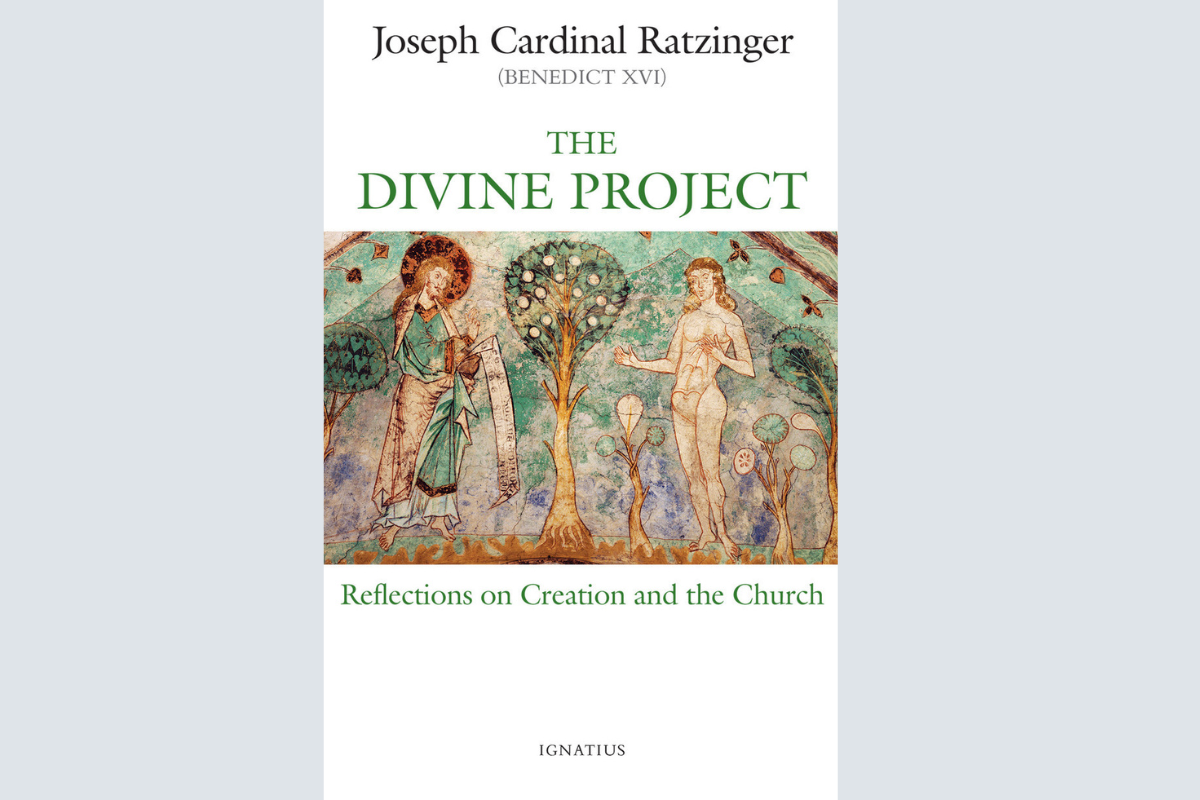Benedict XVI’s ‘The Divine Project’
BOOK PICK: Remembering Pope Benedict XVI on what would've been his 96th birthday.

THE DIVINE PROJECT
REFLECTIONS ON CREATION AND THE CHURCH
By Joseph Cardinal Ratzinger (Pope Benedict XVI)
Ignatius Press, 2022
177 pages, $18.95
To order: ewtnrc.com
After John Paul II died, and as his canonization process ensued, several lost talks and retreats he delivered during his 32 years of priesthood in Poland were discovered and published.
Similarly, this book contains five lectures then-Cardinal Ratzinger gave in 1985 in Austria.
Though they were known and partially published, were they complete?
The discovery in an attic of someone’s recording of them allowed their full texts to be transcribed.
John Paul once said, around the time of his Wednesday audiences on the theology of the body, that if man wants to understand himself, he needs to return to the first pages of Genesis.
Cardinal Ratzinger’s lectures focus on the theology of creation and of the Church. The title and the thread holding creation and Church together is the question, “What is man?”
“… [T]he biblical account of creation is situated here, at the very heart of the question, ‘What is man?’ ‘What must I do to be a human being?’ It seeks to guide us on our journey into the mysterious land of human existence; it seeks to help us discern what God’s project with man is all about. Man is not merely some entity devoid of an essential nature; rather, God has a project planned for him, and he has freely trusted man with the task of fulfilling this project, and doing so with creativity. And with this text, it is like God rushing to our aid, trying to help us to give our own, creative response to the question that each of us has to answer for himself” (p. 67).

Cardinal Ratzinger guides us to discover what the creation accounts have to tell us. In the process, he teaches us how to read Scripture.
Westerners tend to have very linear approaches to their reading and their logic. It’s how we read books: Start at the beginning; reach the end.
But the Bible is not a modern book, nor even just a book: “Bible” in Greek means “books.”
To start with Genesis and just plough straight through to the Apocalypse fails to capture its full meaning and intent.
The late Polish professor Stanisław Grygiel compared Semitic logic to an eagle. An eagle usually doesn’t swoop down on its prey. It circles, gliding ever closer until it grasps it.
Likewise, reading the Bible requires us to read in circles, because its texts are not historically sequential.
An already-believing Israel wrote Genesis 1, seeing creation through the eyes of its historical relationship with God. Also, insists Cardinal Ratzinger, we must read the Old Testament in the light of Christ, i.e., the New Testament.
“In the beginning,” God didn’t create because he had nothing else to do or even “just” out of love; “In the beginning was the Word,” and what’s in God’s creation — including man — is made in light of relationship to that Word.
This book is classic Ratzinger. Not content with a first-level answer, he plumbs depths others might not even have imagined. In the process, he touches a problem this reviewer thinks affects many American Catholics.
We hold that faith and reason go together. Yet, when it comes to the theology of creation, we seem a bit schizophrenic: many seem ill at ease with how Genesis 1-2 and the “Big Bang” might fit together. Some are content to say the latter is “imagery” and the former “science,” but are more hard-pressed to explain, “So how do they really fit together and complement each other?”
Cardinal Ratzinger, in aquiline fashion, circles the question, bringing together the Bible and ideas of modernity critically, indicating how a snug fit is possible and, in its absence, where modernity humanizes man.
God has a project for man in Christ. These are rich reflections worth pondering.
- Keywords:
- benedict xvi
- book picks
















